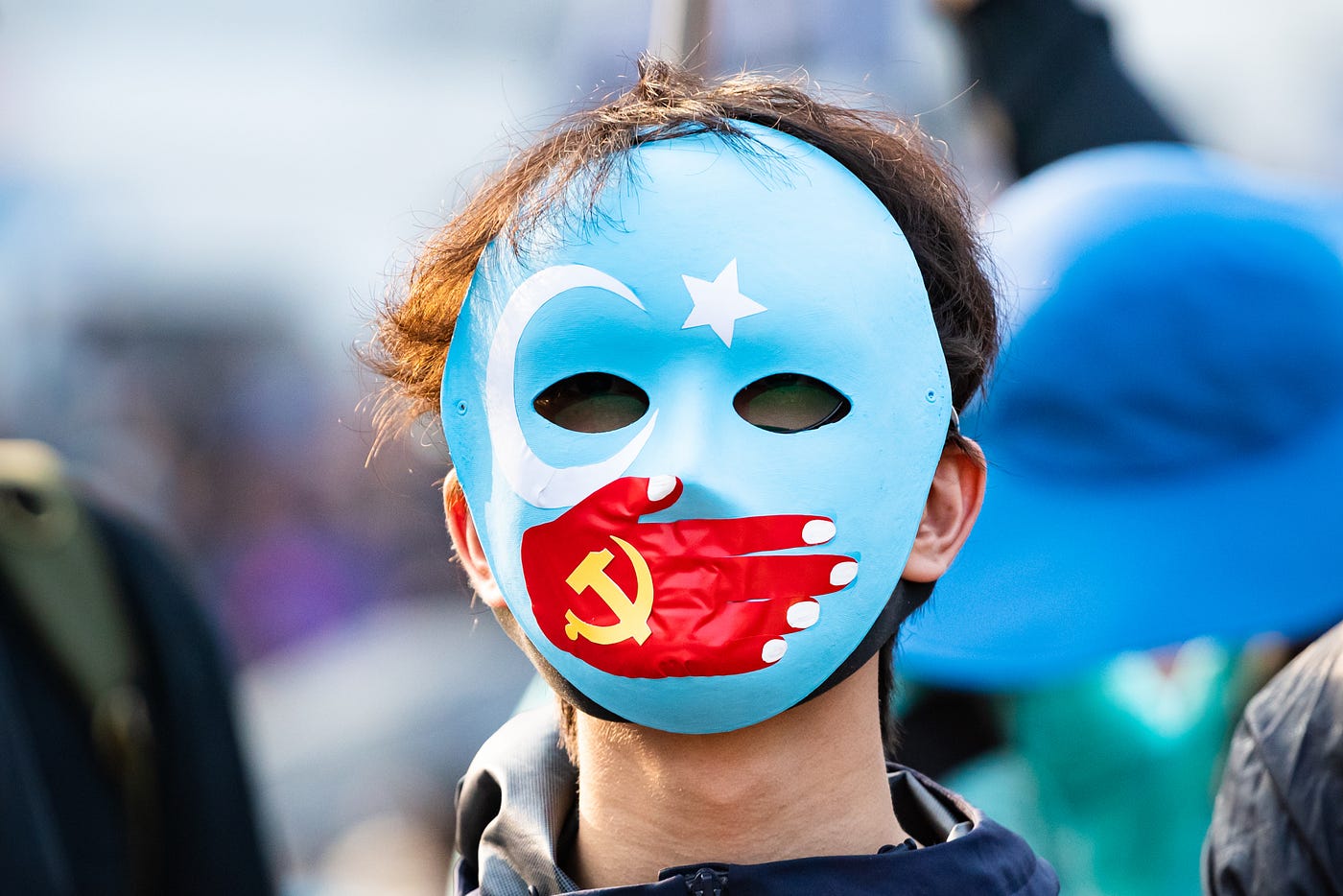

China: The Uyghurs in Xinjiang
Basic Facts:
The crisis in the Xinjiang Uyghur Autonomous Region (XUAR) represents one of the most extensive state-sponsored campaigns of surveillance and cultural assimilation in the 21st century. The context is rooted in the region’s complex history as a crossroads of the Silk Road, inhabited predominantly by Muslim, Turkic-speaking Uyghurs, who possess a distinct cultural and religious identity from China’s Han majority. Xinjiang was incorporated into the People’s Republic of China in 1949. Tensions have periodically flared between Uyghur aspirations for greater autonomy or independence and the Chinese state’s imperative of territorial integrity. A series of violent incidents and attacks, which the Chinese government attributes to Uyghur separatists and Islamist extremists, provided the pretext for a drastic shift in policy around 2017. Under the guise of counterterrorism and poverty alleviation, Chinese authorities initiated a sweeping campaign that has led to the arbitrary detention of over one million Uyghurs and other Turkic minorities in a network of high-security facilities officially termed “vocational education and training centers.”
Beyond the camps, the campaign employs a system of pervasive digital surveillance, mandatory installation of tracking software, the use of facial recognition technology, and the collection of biometric data. There are extensive reports of coercive labor transfers, forced sterilization of women, the systematic demolition of mosques and religious sites, and the suppression of the Uyghur language and cultural practices. The stated goal of “eradicating extremism” has, in practice, manifested as an attempt to dismantle the very foundations of Uyghur identity.
Perspectives:
The Chinese State Narrative: The government of the People’s Republic of China frames its actions as a necessary, lawful, and successful campaign against the “three evils” of terrorism, separatism, and religious extremism. It portrays the camps as humanitarian efforts providing vocational training, deradicalization, and Mandarin language instruction, aimed at integrating Uyghurs into the national economy and fostering social harmony. Beijing points to economic investment and the absence of recent terror attacks in the region as evidence of the policy’s success, vehemently denying all allegations of human rights abuses and attributing them to a Western-led campaign to contain China’s rise.
The Uyghur and Diaspora Narrative: For Uyghurs, both within Xinjiang and in exile, these policies are understood as a deliberate and systematic assault on their existence as a people. They describe a state of terror where everyday religious observance, contact with relatives abroad, or even growing a beard can lead to disappearance into the camp system. The narrative is one of cultural genocide—a calculated effort to break up families, erase ethnic traditions, and dilute their population through forced transfers and birth control policies, ultimately aiming to absorb them into the Han Chinese mainstream.
International Perspective: A broad coalition of governments, UN bodies, human rights organizations, and academic researchers has condemned China’s actions. Based on satellite imagery, leaked government documents, and extensive survivor testimony, this perspective concludes that the measures constitute crimes against humanity and suggest elements of genocide as defined under international law. This view holds that China is using counterterrorism as a pretext for a campaign of ethnic suppression aimed at securing strategic control over a resource-rich and geopolitically vital region.
Philosophical Approach:
Central Question: Can a state’s claim to security ever morally justify the systematic suppression of a religious and ethnic identity? This dilemma forces an examination of the limits of state power and the price of absolute security, probing whether a state can ethically negate the identity of a group to preserve its own idea of order.
Utilitarianism (Bentham, Mill): A utilitarian framework would weigh the immense suffering of over a million people against the potential benefit of regional stability and security for a larger population. However, classic utilitarianism requires that the means used be necessary and that no less harmful alternatives exist. The scale, indiscriminate nature, and profound harm of China's policies make a convincing utilitarian justification nearly impossible. John Stuart Mill’s harm principle—that power can only be rightfully exercised over someone to prevent harm to others—would be violated by the targeting of an entire group for their identity rather than their actions.
The Social Contract and Leviathan (Hobbes): Thomas Hobbes argued that individuals cede their rights to an absolute sovereign (the “Leviathan”) in exchange for security and order. From this perspective, the Chinese state could argue it is fulfilling its Hobbesian duty to suppress any element it deems threatening to societal stability. However, critics would argue that the Hobbesian contract is broken when the sovereign becomes the primary source of terror for its own citizens, creating a state of nature within the commonwealth for a targeted minority.
Modern Liberalism (Rawls): John Rawls’s theory of justice, particularly his "veil of ignorance," provides a powerful rebuttal. If the architects of these policies did not know whether they would be born as a Han Chinese official or a Uyghur villager, it is inconceivable they would rationally choose to create a system that so thoroughly strips one group of its basic liberties and dignity. Rawls’s first principle of justice—that each person has an equal right to the most extensive basic liberties—is directly violated by the policies in Xinjiang.
Conclusion:
The case of Xinjiang presents an extreme test of political philosophy. It asks whether security, when defined as the total erasure of a perceived threat, can ever be a moral or sustainable goal, or if it simply becomes a different, more organized form of violence itself.
The crisis in the Xinjiang Uyghur Autonomous Region (XUAR) represents one of the most extensive state-sponsored campaigns of surveillance and cultural assimilation in the 21st century. The context is rooted in the region’s complex history as a crossroads of the Silk Road, inhabited predominantly by Muslim, Turkic-speaking Uyghurs, who possess a distinct cultural and religious identity from China’s Han majority. Xinjiang was incorporated into the People’s Republic of China in 1949. Tensions have periodically flared between Uyghur aspirations for greater autonomy or independence and the Chinese state’s imperative of territorial integrity. A series of violent incidents and attacks, which the Chinese government attributes to Uyghur separatists and Islamist extremists, provided the pretext for a drastic shift in policy around 2017. Under the guise of counterterrorism and poverty alleviation, Chinese authorities initiated a sweeping campaign that has led to the arbitrary detention of over one million Uyghurs and other Turkic minorities in a network of high-security facilities officially termed “vocational education and training centers.”
Beyond the camps, the campaign employs a system of pervasive digital surveillance, mandatory installation of tracking software, the use of facial recognition technology, and the collection of biometric data. There are extensive reports of coercive labor transfers, forced sterilization of women, the systematic demolition of mosques and religious sites, and the suppression of the Uyghur language and cultural practices. The stated goal of “eradicating extremism” has, in practice, manifested as an attempt to dismantle the very foundations of Uyghur identity.
Perspectives:
The Chinese State Narrative: The government of the People’s Republic of China frames its actions as a necessary, lawful, and successful campaign against the “three evils” of terrorism, separatism, and religious extremism. It portrays the camps as humanitarian efforts providing vocational training, deradicalization, and Mandarin language instruction, aimed at integrating Uyghurs into the national economy and fostering social harmony. Beijing points to economic investment and the absence of recent terror attacks in the region as evidence of the policy’s success, vehemently denying all allegations of human rights abuses and attributing them to a Western-led campaign to contain China’s rise.
The Uyghur and Diaspora Narrative: For Uyghurs, both within Xinjiang and in exile, these policies are understood as a deliberate and systematic assault on their existence as a people. They describe a state of terror where everyday religious observance, contact with relatives abroad, or even growing a beard can lead to disappearance into the camp system. The narrative is one of cultural genocide—a calculated effort to break up families, erase ethnic traditions, and dilute their population through forced transfers and birth control policies, ultimately aiming to absorb them into the Han Chinese mainstream.
International Perspective: A broad coalition of governments, UN bodies, human rights organizations, and academic researchers has condemned China’s actions. Based on satellite imagery, leaked government documents, and extensive survivor testimony, this perspective concludes that the measures constitute crimes against humanity and suggest elements of genocide as defined under international law. This view holds that China is using counterterrorism as a pretext for a campaign of ethnic suppression aimed at securing strategic control over a resource-rich and geopolitically vital region.
Philosophical Approach:
Central Question: Can a state’s claim to security ever morally justify the systematic suppression of a religious and ethnic identity? This dilemma forces an examination of the limits of state power and the price of absolute security, probing whether a state can ethically negate the identity of a group to preserve its own idea of order.
Utilitarianism (Bentham, Mill): A utilitarian framework would weigh the immense suffering of over a million people against the potential benefit of regional stability and security for a larger population. However, classic utilitarianism requires that the means used be necessary and that no less harmful alternatives exist. The scale, indiscriminate nature, and profound harm of China's policies make a convincing utilitarian justification nearly impossible. John Stuart Mill’s harm principle—that power can only be rightfully exercised over someone to prevent harm to others—would be violated by the targeting of an entire group for their identity rather than their actions.
The Social Contract and Leviathan (Hobbes): Thomas Hobbes argued that individuals cede their rights to an absolute sovereign (the “Leviathan”) in exchange for security and order. From this perspective, the Chinese state could argue it is fulfilling its Hobbesian duty to suppress any element it deems threatening to societal stability. However, critics would argue that the Hobbesian contract is broken when the sovereign becomes the primary source of terror for its own citizens, creating a state of nature within the commonwealth for a targeted minority.
Modern Liberalism (Rawls): John Rawls’s theory of justice, particularly his "veil of ignorance," provides a powerful rebuttal. If the architects of these policies did not know whether they would be born as a Han Chinese official or a Uyghur villager, it is inconceivable they would rationally choose to create a system that so thoroughly strips one group of its basic liberties and dignity. Rawls’s first principle of justice—that each person has an equal right to the most extensive basic liberties—is directly violated by the policies in Xinjiang.
Conclusion:
The case of Xinjiang presents an extreme test of political philosophy. It asks whether security, when defined as the total erasure of a perceived threat, can ever be a moral or sustainable goal, or if it simply becomes a different, more organized form of violence itself.
